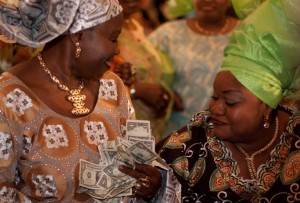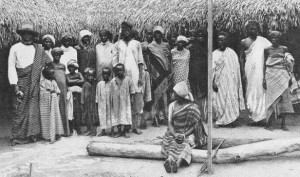
Lagosians, as far as an old writer on the subject, Kunle Akinsemoyin is concerned, are the descendants of the first and early settlers on the islands of Eko (now Lagos), Iddo, including Ebute-Metta on the mainland, and the descendants of the founding fathers who laid the foundation of what has become the city of Lagos and gateway of the Federal Republic of Nigeria, the largest of its kind.” For the megacity Lagos has become, this 1979 definition may not be as definitive any longer, but to what extent? Colloquial definition of Lagosians of course is persons who were born in the city or have lived long enough to be identified with the culture of the place. Such persons for all moral justifications are expected to have considerably lost the membership of the places from which they are originated. If culture is the determinant in who may be reckoned as Lagosian (in the sense of the city) then it may be well necessary to mention who the dictators of this culture were.
The first and the early settlers of Lagos were a crew of Yoruba hunters and fishermen, who after a fabled experience in the island started to be known as Aworis. Under the leadership of one Ogunfunminire, also known as Olofin, they left their initial settlement at Iseri, about ten kilometers on the mainland moving towards the coast to settle at Ebute-Metta. Their journey had actually started from Ife. In 1852, the first batch of newly freed slaves arrived Lagos. They were Yorubas who desire to go back home after spending years working in the plantations of Brazil. They were originated from different towns upcountry but have decided on reaching Lagos to stay. Even years before this time (in 1838), some Yoruba former slaves from Sierra Leone had started arriving. These oversea returnees, having fortified their minds with Western education and manners, joined in giving the city the culture and the soul for which it was known in the 19th Century.
The third category of those who may be reckoned as the early settlers are the natives of West African regions such as Sierra Leone, Gambia and the Gold Coast (now Ghana) who flocked to the city in the wake of its development into one of the most important Coastal towns in West Africa.
The Lagos way of life, heavily dominated by the Yoruba, is characterized by struggle and partying. While the first was a necessity considering the fastness of the city, it is the second of these two mentioned attributes that confirms an observer’s description of the early city life; “they love social gatherings, drumming, dancing, merry making and freely indulged in them at the slightest pretext.” International media have reported the grisly life that a significant fraction of city dwellers get enmeshed in. This may form the basis for visitors’ surprise for the unanticipated kindness with which they will be received. The moral sloppiness for which the city is irrefutably noted may not be unconnected with the hesitation with which successive generations treated the absorption of local values, having been exposed to many varieties of mankind because of the important position of their abode.

After some one hundred years Lagos had attained the status of a megapolis, taken as home by people of many different ethnicities in Nigeria and beyond. Official population figure was put at 7,937,932 (2006 census) but local authority as well as some international agencies believes the figure is understated. Of this, many vibrant community of youthful filmmakers, entertainers, evangelicals and business executives are rising.





















